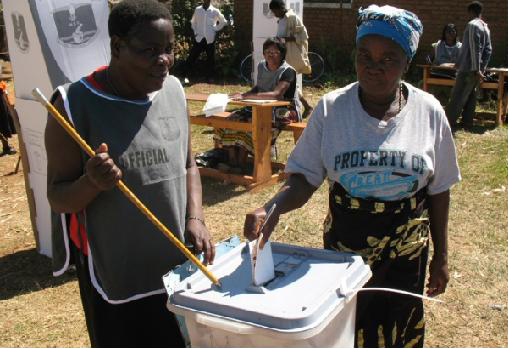Malawi is set for a major overhaul of its winner-takes-all electoral system with far-reaching implications for the country, if ongoing efforts to reform the system bear fruit.
Any changes in the voting system will represent the biggest overhaul of the country’s electoral system since it became a multiparty state in the mid 1990s. This followed the end of one-party dictatorship under Kamuzu Banda, the country’s first post-colonial leader and “president for life”.
A special Malawi Law Commission was given the task of reforming the country’s electoral laws. Following a year of investigation, it recently held a two-day multi-stakeholder conference to discuss the planned reforms. Its main proposal is that the current first-past-the-post (FPTP) system of electing the president should be abolished.
I believe that the proposed new system would help reduce the toxic politics of regionalism in Malawi. It would also enhance national stability, which is the bedrock of any successful nation. But it isn’t without challenges, and would need the serious allocation of state resources to bring it about.
Proposed changes
The proposed new system – absolute majority – to replace the FPTP will require the winning candidate for president to get at least 51+ percent threshold of the national vote.
Political scientist at Catholic University, Nandini Patel, a participant at the conference, has explained the proposal thus:
In a situation where no presidential candidate secures the threshold, the recommendation is that there should be a runoff or double ballot where the top two candidates contest in the second round and the one who secures more votes is declared winner.
On the face of it, the proposal is straightforward and makes logical sense. Yet, this is complex than it appears and if adopted it would revolutionise the way local politics is done.
The FPTP has been been in place since 1994, when Malawi embraced multiparty politics after doing away with Kamuzu Banda’s 30 years of dictatorship. Since then, a presidential candidate from a high-populated region is more or less assured of electoral victory because the FPTP system.
In the case of Malawi, the country’s Southern Region has always had a higher population than the Central and Northern administrative regions. Thus, all the country’s presidents since the dawn of democracy have come from that region; Bakili Muluzi (1994 – 2004), Bingu wa Mutharika (2004 – 2012), Joyce Banda (2012 – 2014) and the incumbent, Peter Mutharika, Bingu’s young brother, from 2014.
This may yet be a coincidence given that there is no study to back the hypothesis. But, the fact that the sitting President, Peter Mutharika, won the election with only 35% of the national threshold strengthens the hypothesis. All things being equal, it should not matter where the state president comes from. Yet, as I have previously argued: the trend in Malawi is for the incumbent president to concentrate government development efforts in their own regions and districts of origins.
This makes those from other parts of the country feel aggrieved and short-changed. It’s for this reason that some members of the political elite in the country lodged serious calls for federal system of government, barely two months after Mutharika’s electoral victory in 2014.
Of course the late President, Bingu wa Mutharika initially came into office in 2004 with only 36% of the national threshold but managed to get a 63%of the national threshold in 2009 to win his second term. He got votes in all regions other than only the Southern Region where he comes from.
The proposals to end the advantage the FPTP gives to candidates from highly populated districts are already facing resistance from some in the governing party. Heatherwick Ntaba, President Mutharika’s special advisor has argued ca the proposed new system of electing the president is “unrealistic and wasteful.”
there is no way we can attain legitimacy of people are talking about. Let us talk about the costs. In reality we are already struggling to conduct by-elections [in areas where MPs and local government councilors have died].
Challenges
The proposed absolute majority system will certainly have its own problems. But, Ntaba’s fears are self-serving as the current system benefits his political party. Given the country’s regionalism voting pattern, the new 51+ winning threshold would require presidential candidates to reach out to regions beyond their own regions in order to win the presidency. No single region can produce enough votes for 51+ winning threshold.
Presidential candidates will thus be forced to consider forming alliances with candidates from other regions. This would have a good unintended consequence as politicians would be forced to extend government developmental programmes beyond their owns regions.
This would also introduce Malawi to the dynamics of alliance politics, with all its unpredictability and possible infighting within the governing alliance, given that it leaves a room for alliances of convenience, that are not necessarily in the interest of the country.
Yet, the bigger picture is that the new policy would reduce grievances and the feelings of unfairness. In the past, these fuelled calls for the country to adopt a federal system of government.



